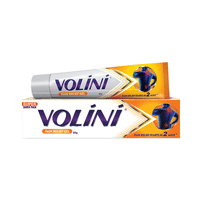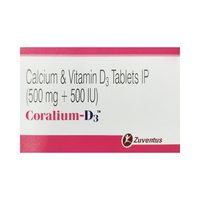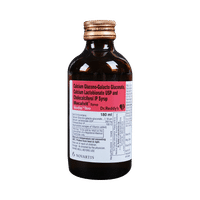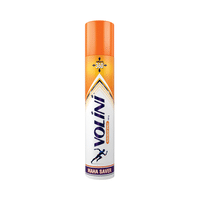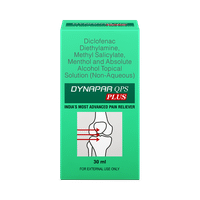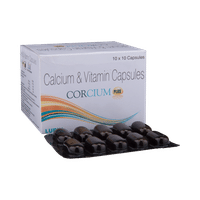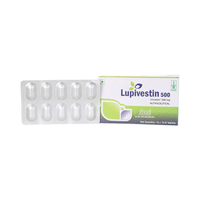Tolmark P 150mg/325mg Tablet

Rs.189for 1 strip(s) (10 tablets each)
food interaction for Tolmark P
alcohol interaction for Tolmark P
pregnancy interaction for Tolmark P
lactation interaction for Tolmark P
food
alcohol
pregnancy
lactation
Tolmark P 150mg/325mg Tablet is to be taken with food.
None
None
CAUTION
It is unsafe to consume alcohol with Tolmark P 150mg/325mg Tablet.
UNSAFE
Tolmark P 150mg/325mg Tablet may be unsafe to use during pregnancy. Although there are limited studies in humans, animal studies have shown harmful effects on the developing baby. Your doctor will weigh the benefits and any potential risks before prescribing it to you. Please consult your doctor.
CONSULT YOUR DOCTOR
Information regarding the use of Tolmark P 150mg/325mg Tablet during breastfeeding is not available. Please consult your doctor.
CONSULT YOUR DOCTOR
SALT INFORMATION FOR Tolmark P
Tolperisone(150mg)
Uses
Tolperisone is used for muscle relaxation. It is used to treat acute musculoskeletal pain.
How it works
Tolperisone is a muscle relaxant. It works on the centres in the brain and spinal cord to relieve muscle stiffness or spasm without reduction in strength. This improves pain and movement of muscles.
Common side effects
Sleepiness, Dizziness, Fatigue, Dryness in mouth, Muscle weakness, Nausea, Vomiting, Abdominal pain, Loss of appetite, Insomnia (difficulty in sleeping), Headache, Diarrhea, Muscle pain, Anaphylactic reaction, Convulsion, Increased sweating, Excessive thirst, Urticaria, Increased creatinine level in blood
Paracetamol(325mg)
Uses
Paracetamol is used for pain relief and fever. It is used to relieve pain in conditions like headache, muscle pain, or dental pain.
How it works
Paracetamol is an analgesic (pain reliever) and anti-pyretic (fever reducer). It works by blocking the release of certain chemical messengers that cause pain and fever.
Common side effects
Nausea, Vomiting, Insomnia (difficulty in sleeping), Headache, Constipation, Itching, Nephropathy, Hypersensitivity, Platelet disorders, Depression, Confusion, Hallucination, Abnormal vision, Hypoglycemia (low blood glucose level), Sterile pyuria, Liver toxicity, Hemorrhage
SUBSTITUTES FOR Tolmark P
50 Substitutes
50 Substitutes
Sorted By
 Rs. 197.10pay 3% more per Tablet
Rs. 197.10pay 3% more per Tablet Rs. 165save 15% more per Tablet
Rs. 165save 15% more per Tablet Rs. 141save 28% more per Tablet
Rs. 141save 28% more per Tablet Rs. 180save 7% more per Tablet
Rs. 180save 7% more per Tablet Rs. 163.35save 15% more per Tablet
Rs. 163.35save 15% more per Tablet
Expert advice FOR Tolmark P
- Tolperisone provides relief from rigidity, tension and stiffness in muscles (spasticity) that may occur due to various conditions affecting the nervous system.
- Take it with or after food or a glass of milk.
- Tolperisone may cause dizziness or sleepiness. Do not drive or do anything requiring concentration until you know how it affects you.
- Inform your doctor if you are pregnant, planning to conceive or breastfeeding.
- Do not stop taking it suddenly without talking to your doctor if you've been on it for a long time.
Frequently asked questions FOR Tolmark P
Tolperisone
Q. Is Tolperisone a painkiller?
Tolperisone is not a direct painkiller. It is a muscle relaxant commonly used where certain muscles are in constant contraction. It is used in the treatment of long-term pain conditions. It works by relaxing the muscles and relieving the spasm. It is important to know that this medicine is not advised to be taken in all pain conditions. Your doctor will decide when to prescribe this medicine.
Q. Does Tolperisone cause drowsiness?
Yes, there are chances that Tolperisone can cause drowsiness and sleepiness. Hence, avoid driving or working with heavy machines while you take this medication. Before starting the medication consult the doctor and also inform if you are on any sleep medication.
Q. Is Tolperisone addictive?
No, Tolperisone is not an addictive medicine. It is a muscle relaxant medication and has no addictive potential.
Paracetamol
Q. What if I vomit after taking Paracetamol?
If you vomit in less than 30 minutes after having a dose of Paracetamol tablets or syrup, retake the same dose again. If you vomit after 30 minutes of a dose, you do not need to take another one until the next standard dose.
Q. When will I feel better after taking the Paracetamol?
Usually, you will start feeling better after about half an hour of taking a Paracetamol.
Q. How often can I take the Paracetamol?
You should only take four doses of Paracetamol in 24 hours. There should be a gap of at least 4 hours between two doses. Do not take Paracetamol for more than 3 days without consulting a doctor first.














